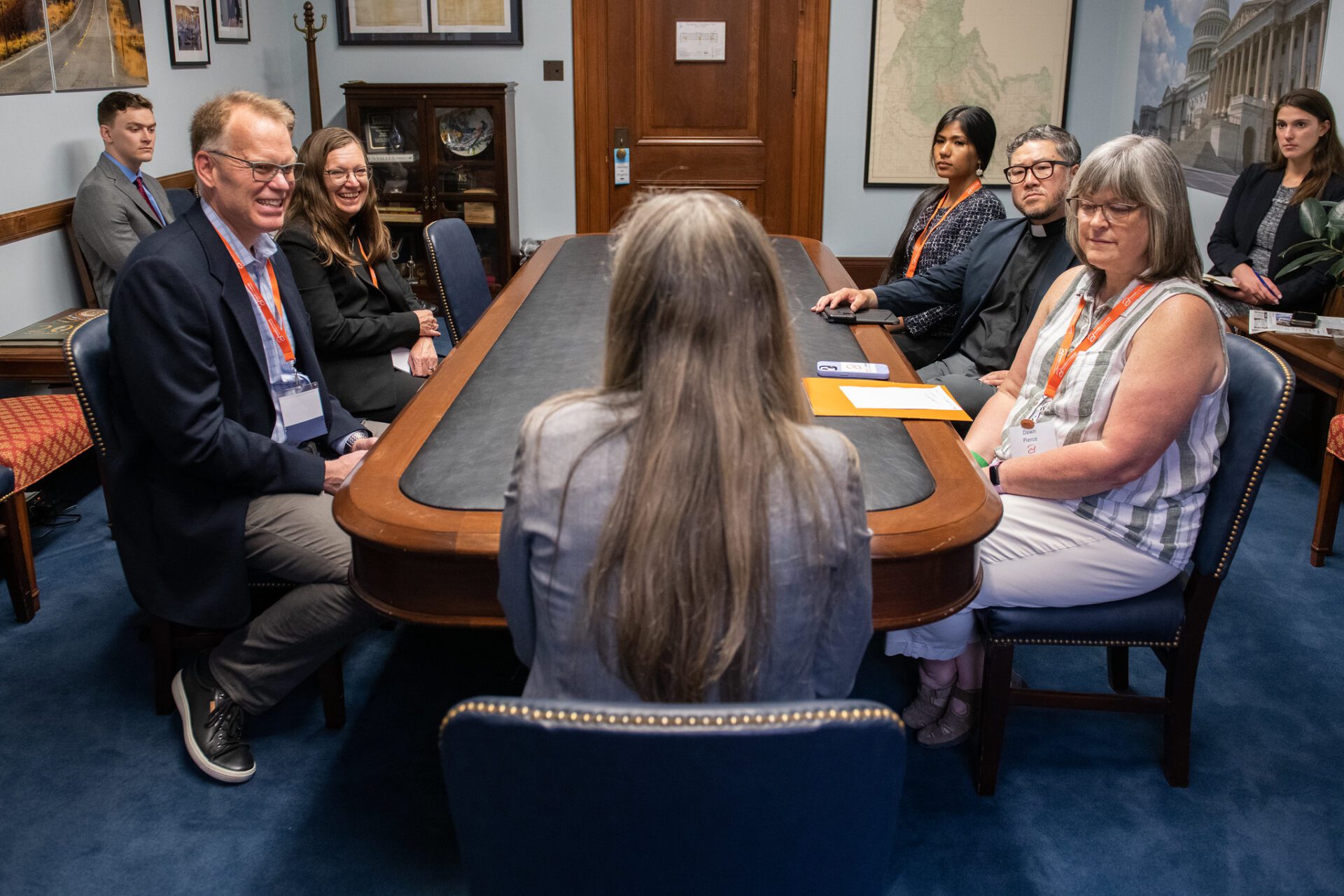
History & Mission
Bread for the World is a Christian advocacy organization urging U.S. decision makers to do all they can to pursue a world without hunger. Moved by God’s grace in Jesus Christ, we advocate for ending hunger at home and abroad.
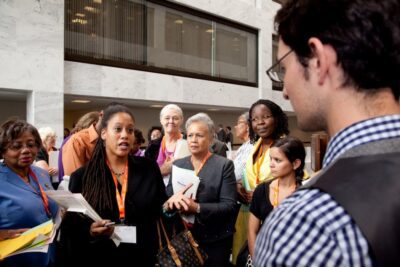
Our Mission
Bread members send letters and emails, make phone calls, and visit their members of Congress about legislation that addresses hunger in the U.S. and around the world. Bread equips its members to communicate with Congress and to work with others on advocacy. We educate members on hunger-related issues and inspire them to be legislative activists as a way of putting their Christian faith into action.
Bread works in partnership with churches, campuses, and other organizations to mobilize Christians and others in congressional districts and states.
We believe it is possible to end hunger in our lifetime and that everyone must play a part in ending hunger, especially our federal government. We work to change the policies and conditions that allow hunger to persist. Bread seeks long-term solutions to hunger and advocates on legislation that addresses the root causes of hunger.
We have a track record of winning bipartisan legislation that helps people experiencing hunger feed their families. We are successful because our grassroots network of members and activists works in concert with national denominations, networks, and organizations supported by Bread’s staff in Washington, D.C., and around the country.
God’s grace moves us to build the political commitment needed to overcome hunger and poverty.
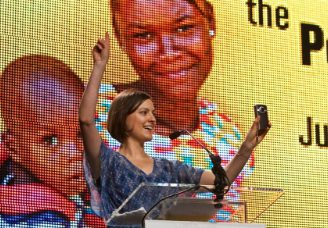
Our History
In the 1970s, Rev. Art Simon, the pastor of Trinity Lutheran Church on New York City’s Lower East Side, often found himself responding to emergency situations caused by hunger and poverty in his neighborhood.
Simon, along with a dozen other church leaders in the area — Roman Catholics, Presbyterians, and Lutherans — began meeting to explore how they might address the local and global root causes of hunger. They saw a place for Christians to try to prevent hunger from happening in the first place rather than just reacting to it. In 1974, this group founded Bread for the World with the mission of ending hunger in the world by speaking out to their elected officials in Washington, D.C.
It’s better to build a fence at the top of a cliff than to have an ambulance at the bottom.
– Rev. Art Simon
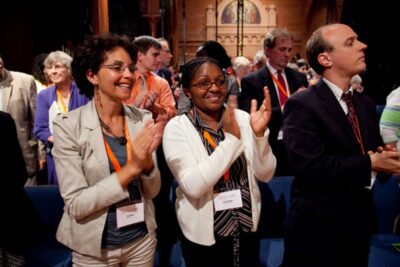
Building a Grassroots Network
From the very start, Bread has been a group effort. Our success has been made possible only because people of faith seized the opportunity to reach out to our nation’s decision makers for action against hunger.
“We began with a tiny seed of an idea, but the seed had life and, when planted, God gave growth,” Simon recalls.
Bread’s grassroots network was born with the launch of Project 500 — an effort to recruit and train 500 advocates. Many of those early advocates remain active Bread members today. And this network, which has grown exponentially since then, remains the engine of our organization.

Bread’s Offering of Letters Is Born
Bread launched our first large-scale letter writing campaign, the Offering of Letters, in 1975 — on the right to food. Despite having fewer than 10,000 members at the time, we were able to generate more than 100,000 letters to Congress on this issue because our active members invited their fellow church members to participate.
The landmark Right to Food Resolution, passed overwhelmingly by Congress, states: “…the United States reaffirms the right of every person in this country and throughout the world to food and a nutritionally adequate diet…”
Nearly five decades later, this simple, brilliant idea — the Offering of Letters — remains one of Bread’s core organizing strategies. It is still Bread’s signature campaign and an event that our members look forward to participating in every year.
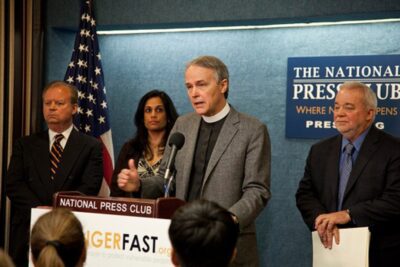
Bread Grows in Experience, Expertise, and Reputation
Over the years, Bread’s Offering of Letters and other campaigns have won far-reaching changes for people experiencing hunger and poverty. Bread’s members have written millions of letters to their members of Congress.
In 1991, Rev. David Beckmann, also a Lutheran pastor, succeeded Simon as president. Beckmann worked for 15 years at the World Bank prior to coming to Bread. During his leadership, Bread became more prominent, with a significant, larger membership, budget, and staff.
On July 1, 2020, Rev. Eugene Cho succeeded Beckmann as president. Cho, an Evangelical Christian, is the founder and visionary of One Day’s Wages — a grassroots movement of people, stories, and actions to alleviate extreme global poverty. He is also founder and former senior pastor of Quest Church in Seattle, Washington.
Bread has also branched out over the years, establishing two affiliates:
- Bread for the World Institute, established in 1975, provides policy analysis on hunger and strategies to end it. From 1990 to 2020, the Institute published a highly-regarded Hunger Report, an authoritative analysis of hunger trends and a resource for hunger statistics.
- The Alliance to End Hunger, established in 2001, engages diverse organizations — including Jewish and Muslim groups, charities, universities, and corporations — to build the public and political will to end hunger at home and abroad.
